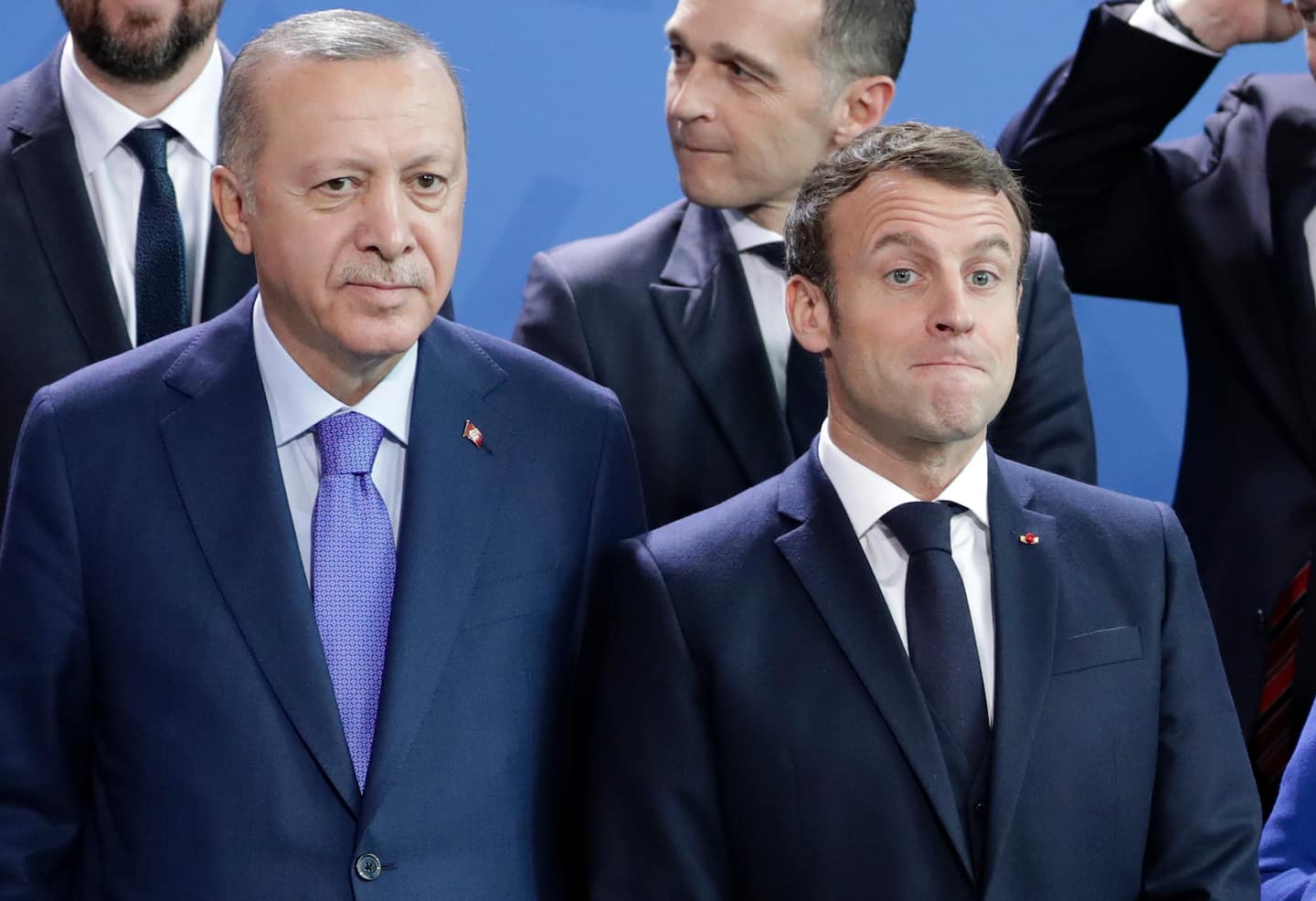Macron vs. Erdogan is a fight both leaders want

Over the weekend, Erdogan took umbrage with comments made by Macron about Islam. The French president recently announced a controversial campaign to change the practice of the faith within France, warning that some Muslims in the country were propagating beliefs that deviate “from the values of the republic and which often result in the creation of a counter-society.” The effort assumed greater urgency following the brutal beheading of a schoolteacher who had shown students caricatures of the prophet Muhammad. Those images were projected on government buildings in some French cities as the nation mourned the slain teacher.
Erdogan, who frequently inveighs against perceived Western hypocrisy and seeks to champion the rights of Muslims outside his country, decried Macron’s lack of acceptance of freedom of religion. “What is the problem of this person called Macron with Muslims and Islam?” Erdogan said during a speech Saturday. “Macron needs treatment on a mental level.” Erdogan directly attacked the French leader’s mental acuity a year ago after Macron expressed disapproval of Ankara’s military incursion into northeastern Syria. This time, the jab precipitated a French backlash, with Paris withdrawing its ambassador in Ankara on Sunday.
On Monday, Erdogan threw down the gauntlet. In a televised address, he appealed to Muslims to boycott French goods out of solidarity with their brethren in France, who he said were “subjected to a lynch campaign similar to that against Jews in Europe before World War II.” Erdogan’s call played out to limited effect elsewhere in the Arab world. Various factions in Lebanon, whose political reform Macron is eagerly pursuing, issued statements calling for greater respect for religious sensitivities. Officials in Jordan, Pakistan, Egypt and Iran all condemned the French position and Macron’s defense of the cartoons, which are considered blasphemous in Islam.
My colleague, Sarah Dadouch, observed that, “while some hashtags cropped up [on social media], including phrases like ‘Boycott France’ and ‘[Everything] but the prophet,’ calls for boycotts and anti-French protests have not garnered much attention. But some still distributed photos listing French companies to boycott, such as Tefal, Dior and Carrefour.”
Erdogan called for the boycott on a day when the lira, Turkey’s currency, reached a record low, trading at 8 against the dollar for the first time. “Turkish authorities have spent about $134 billion over the past 18 months to support the currency, according to an estimate by Goldman Sachs,” noted the Financial Times. “That effort has taken a heavy toll on the country’s foreign currency reserves, prompting the rating agency Moody’s to warn last month that Ankara had ‘almost depleted the buffers that would allow it stave off a potential balance-of-payments crisis.’”
“No matter how frustrated the West has become over Erdogan’s bullying tactics, Western countries could not craft a meaningful response that would change Erdogan’s behavior,” Gönül Tol of the Middle East Institute told Today’s WorldView. “So Erdogan sees no reason to change course. As long as he sees opportunities to burnish his nationalist and Islamic credentials and fan national pride, he will not play nice.”
Macron has obvious domestic motivations, too. His moves to regulate the practice of Islam within France may help him outflank France’s xenophobic far right. At the same time, his emergence as Erdogan’s chief antagonist may buttress the image he wishes to project of himself as a defender of European interests on the world stage. Numerous European leaders rallied around the French president in anger over Erdogan’s rhetoric.
“Macron sees an increasingly authoritarian and aggressive Turkey threatening European security … and believes that Europeans should respond,” Benjamin Haddad of the Atlantic Council told Today’s WorldView.
“This is the dream fight for both of them,” Asli Aydintasbas, a fellow at the European Council on Foreign Relations, told my colleagues. “In each other, Macron and Erdogan have found the ideal enemy. This spat works for both leaders in some strange fashion, both domestically and in terms of the influence they are trying to project abroad.”
Indeed, they may well find it more satisfying to confront each other than to reckon with the challenges at their doorsteps. Erdogan could soon have to reckon with the consequences of foreign policy overreach after a year of aggressive adventurism in Turkey’s neighborhood. Macron, meanwhile, is embarking on a somewhat quixotic quest at home.
“Instead of addressing the alienation of French Muslims, especially in France’s exurban ghettos, or banlieues — which experts broadly agree is the root cause that leaves some susceptible to radicalization and violence — the government aims to influence the practice of a 1,400-year-old faith, one with almost 2 billion peaceful followers around the world, including tens of millions in the West,” wrote my colleague James McAuley. “It’s an odd answer to the problem.”
Read more:






